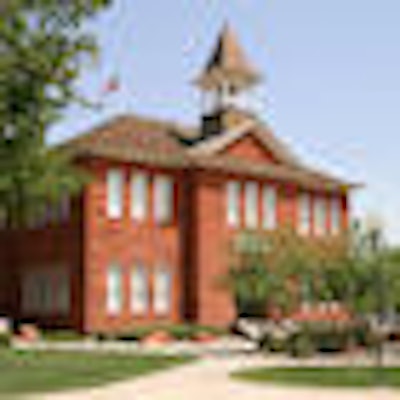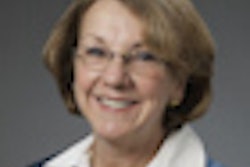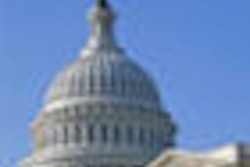
A $10 million Wisconsin state grant for the Marshfield Clinic's new rural dental education outreach facility may be in jeopardy after a state administrator said the grant cannot be used for a dental school.
The dispute involves whether the state's $10 million matching grant can be used to train dental students. In a June letter to clinic president Karl Ulrich, MD, state administrator Jeff Plale warned that "the state grant may not be used to fund construction of a dental school."
According to the letter, the agreement between the state and the clinic stipulated that "a rural dental education facility would be used to train dental residents and postbaccalaureate students, but not dental students."
But Marshfield spokesman Bob Mackle said the final decision is not up to Plale. "We view that as not the final word on this," he told DrBicuspid.com. "This is just one person's interpretation."
“It's been very clear all along that a dental school was part of this program.”
— Bob Mackle, Marshfield Clinic
Such restrictions were not in the original bill approved by state lawmakers in April 2010, he added.
When the state building commission approved the measure, a motion to prohibit a new dental school was defeated, according to Mackle.
"Initially, the programs will be for residents and postbaccalaureate students, and eventually it will be a full-scale dental school," Mackle said. "It's been very clear all along that a dental school was part of this program, and everybody who voted for it understood that."
Administrator Plale's letter said Marshfield's plan is "inconsistent" with the agreement and threatened to block state funding for construction of the new facility, he added.
Dental association opposed
The Marshfield Clinic, established in 1916, provides dental access for the rural and economically impoverished communities of Wisconsin through a combination of state and federal grants. Marshfield currently operates seven federally qualified dental health clinics in northwest Wisconsin, with another clinic now being built.
When Gov. Jim Doyle signed SB 656 last year, it stipulated that if the grant wasn't used for an outreach facility, the state would retain ownership equal to the amount of the state grant; in this case, it would be 50%.
"Consequently, if state funds are used to construct a dental school, the state may elect to invoke its ownership rights as provided in the use agreement," Plale warned.
Marquette University, home to the state's only dental school, and the Wisconsin Dental Association (WDA) both are vigorously opposed to a new dental school. Marquette is concerned that another dental school that uses state funds will imperil its own funding, especially with current budget deficits. Marquette and the WDA say state money should go toward supporting the existing school.
Marquette officials initially supported the idea but then reversed that support, saying they would have opposed it had they known that the final proposal would include a new dental school.
Gene Shoemaker, DDS, WDA president, said his group supported the clinic's original intent -- a dental residency program, not a new dental school.
"The $10 million was designated by law and in Marshfield's contract with the state to help build a 'dental outreach facility,' " Dr. Shoemaker said in an email to DrBicuspid.com. "That facility was clearly defined in letters from Marshfield to legislators as postbaccalaureate and residency programs only. There was never any suggestion by Marshfield or stipulation by the Legislature for a dental school."
The WDA strongly opposes a new dental school "for a variety of reasons," he added. There are other ways to increase access to care besides spending $10 million on this project, such as raising Medicaid reimbursement rates, he said.
"If Marshfield had intended to use the $10 million to build a new dental school, it should have included that language in the original legislative bill so the merits and disadvantages of such a proposal could be properly researched and debated," Dr. Shoemaker said. "That didn't happen, and we are pleased the Building Commission is holding to the original terms of the law and the Marshfield contract."
A different purpose
Clinic officials asserted that the new school is intended to serve a different purpose than the existing school at Marquette, focusing on rural areas and attracting students who can go to underserved areas, with clinical training provided in the rural dental clinics.
Mackle expects the dispute to be resolved and the project to go forward.
"We're continuing our plans for an educational program, and we haven't changed those plans in the least bit," he said. "We think over time this will work itself out. Other people in state government will weigh in, and we've been in discussion with many in state government. We're confident in the long run it will work out in our favor."
Mackle said the plan is to begin with a residency program for dental school graduates, then develop a postbaccalaureate program for college graduates. The dental school is planned for five or 10 years down the road, he noted.
While the postbaccalaureate program would not require accreditation, the clinic is working to get the residency program accredited by the Higher Learning Commission and the ADA Commission on Dental Accreditation.
The unmet need for access to care is readily apparent, Mackle said.
"Whenever we open one of our dental centers in central or northern Wisconsin, people flock to it because they can't get care anywhere else," he said.
Most patients have no insurance or BadgerCare (the state's Medicaid program), Mackle said.
Wisconsin received a "C" grade in a May report by the Pew Center on the States. Dental care for children covered by Medicaid in the state remains "stubbornly low," the study found, with just three in 10 children receiving care.
Likewise, Medicaid payment rates remain far below the group's benchmark, the Pew study noted. Nine out of 10 dentists in Wisconsin accept few or no Medicaid patients, citing the low reimbursement rates. Rural communities suffer the most, according to Pew, having about half as many dentists per person as urban areas.



















